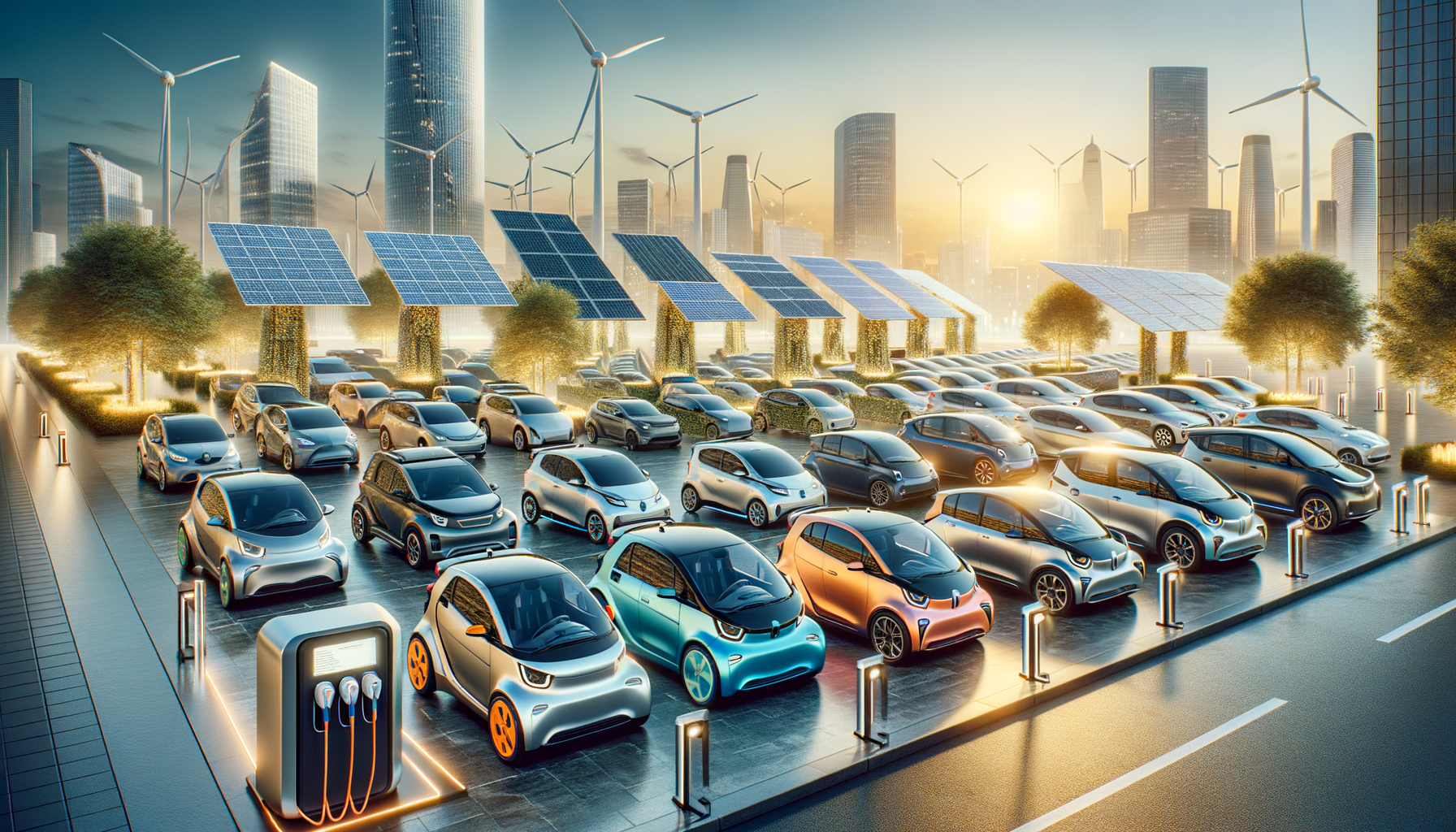The Rise of Compact Electric Vehicles
In recent years, the automotive industry has witnessed a significant shift towards sustainability, with compact electric vehicles (EVs) leading the charge. These small yet efficient vehicles are designed to address urban mobility challenges, offering a practical solution to the growing concerns over pollution and congestion. The rise of compact EVs is driven by several factors, including technological advancements, environmental awareness, and changing consumer preferences.
One of the primary drivers of this trend is the advancement in battery technology. Modern batteries are not only more efficient but also more affordable, making electric vehicles a viable option for a broader audience. Additionally, the reduction in battery size without compromising power has allowed manufacturers to design smaller vehicles that are perfect for city driving.
Another factor contributing to the popularity of compact EVs is the increasing awareness of environmental issues. With climate change being a pressing global concern, more consumers are seeking sustainable alternatives to traditional gasoline-powered vehicles. Compact EVs produce zero emissions, making them an attractive option for eco-conscious individuals.
Lastly, the changing preferences of consumers, particularly among younger generations, have played a crucial role in the rise of compact EVs. Millennials and Gen Z are more inclined towards minimalism and sustainability, valuing experiences over ownership. Compact EVs align with these values, offering an efficient and eco-friendly mode of transportation without the burden of high maintenance costs.
Benefits of Compact Electric Vehicles
Compact electric vehicles offer a myriad of benefits that make them appealing to a wide range of consumers. One of the most significant advantages is their environmental impact. Unlike traditional vehicles that rely on fossil fuels, compact EVs operate on electricity, which can be sourced from renewable energy. This transition helps reduce the carbon footprint associated with transportation, contributing to cleaner air and a healthier environment.
Another notable benefit is the cost savings associated with owning a compact EV. Although the initial purchase price may be higher than that of a conventional vehicle, the long-term savings are substantial. Electric vehicles have fewer moving parts, which means less wear and tear and lower maintenance costs. Additionally, the cost of electricity is generally lower than gasoline, resulting in reduced fuel expenses over time.
Compact EVs also offer enhanced convenience, particularly in urban settings. Their smaller size makes them ideal for navigating through traffic and finding parking in crowded city centers. Many compact EVs come equipped with advanced technology features, such as regenerative braking and smart navigation systems, which enhance the driving experience and improve efficiency.
Furthermore, governments around the world are incentivizing the adoption of electric vehicles through tax credits, rebates, and other benefits. These incentives can significantly reduce the overall cost of purchasing and owning a compact EV, making them more accessible to a broader audience.
Challenges Facing Compact Electric Vehicles
Despite their numerous advantages, compact electric vehicles face several challenges that must be addressed to ensure their widespread adoption. One of the primary obstacles is the limited range of many compact EVs. While battery technology has improved, some models still struggle to provide the range required for longer trips, which can be a deterrent for potential buyers.
The availability of charging infrastructure is another significant challenge. Although the number of charging stations is increasing, many regions still lack adequate facilities, particularly in rural areas. This scarcity can lead to “range anxiety,” where drivers fear running out of power without access to a charging station.
Additionally, the initial cost of compact EVs can be prohibitive for some consumers. While prices have decreased over the years, they remain higher than those of comparable gasoline-powered vehicles. This price gap can be a barrier for individuals who prioritize upfront costs over long-term savings.
Lastly, there is a need for greater public awareness and education regarding the benefits and capabilities of compact EVs. Misconceptions about performance, reliability, and practicality can deter potential buyers, highlighting the importance of effective marketing and outreach efforts by manufacturers and governments.
The Future of Compact Electric Vehicles
The future of compact electric vehicles looks promising, with continued advancements in technology and growing support from governments and consumers alike. As battery technology continues to evolve, we can expect to see improvements in range and charging times, making compact EVs even more practical for everyday use.
Moreover, the expansion of charging infrastructure is a key focus for many countries, with investments being made to ensure that charging stations are as ubiquitous as gas stations. This development will help alleviate range anxiety and make electric vehicles a more convenient option for all drivers.
In addition to technological advancements, the automotive industry is likely to see an increase in competition as more manufacturers enter the compact EV market. This competition will drive innovation and lead to more affordable and diverse options for consumers, further accelerating the adoption of electric vehicles.
Governments are also expected to play a crucial role in shaping the future of compact EVs through policies and incentives that encourage sustainable transportation. By supporting research and development, providing financial incentives, and implementing stricter emissions regulations, governments can help facilitate the transition to a more sustainable transportation system.
Conclusion: A Sustainable Path Forward
Compact electric vehicles represent a significant step towards a more sustainable future. Their growing popularity is a testament to the changing landscape of transportation, driven by technological advancements, environmental awareness, and evolving consumer preferences. While challenges remain, the benefits of compact EVs are undeniable, offering a cleaner, more efficient, and cost-effective solution for urban mobility.
For consumers, compact EVs provide an opportunity to contribute to a healthier planet while enjoying the conveniences of modern technology. As the industry continues to evolve, we can expect to see even more innovations that will make electric vehicles an integral part of our daily lives.
Ultimately, the shift towards compact electric vehicles is not just about reducing emissions or saving money; it’s about reimagining the way we move and live in our cities. By embracing this change, we can pave the way for a more sustainable and vibrant future for generations to come.








